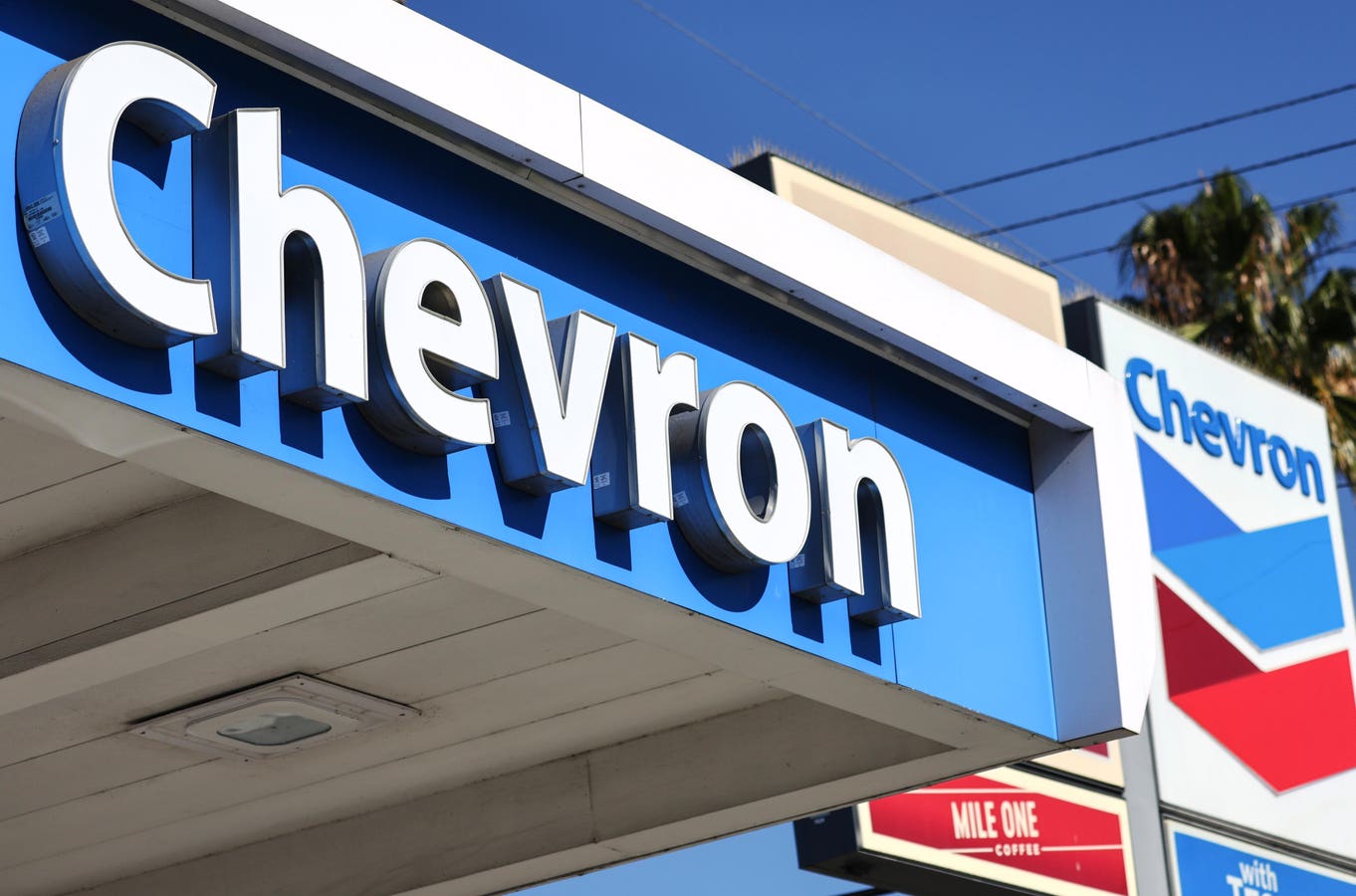Key takeaways
- Chevron has agreed to buy oil producer Hess for $53 billion in an all-stock transaction
- The move comes weeks after Exxon announced its own $60 billion merger news with Pioneer Natural Resources
- Chevron’s share price fell as much as 3.7% on Monday
Oil and gas behemoth Chevron has agreed to buy oil producer Hess for a whopping $53 billion, it announced this week, in a deal that has sparked comparisons to an oil arms race in the sector.
Chevron buying up Hess for $53 billion is the latest in a string of M&A for the sector, with the oil titan looking to capitalize on the Guyana oil reserves rival Exxon Mobil has, having first been discovered in 2015. But both Chevron and Hess shares were down on Monday, despite the good news.
Let’s get into the details about the new Chevron-Hess tie-up, why it’s taking on rival Exxon Mobil in the field, and how Wall Street liked the news.
What’s happening at Chevron?
It’s official: Chevron is looking to keep up with Exxon after announcing its deal to buy Hess for $53 billion. Chevron offered around $171 a share, adding around a 4.9% premium to Hess stock’s last close. Including debt, the total deal value is $60 billion.
The acquisition means Chevron’s oil and gas output will rise to 3.7 million barrels per day (bpd). Chevron’s shale output, which Hess specializes in, will also grow by 40% to 1.3 million bpd – a similar output to Exxon.
The takeover also shifts Chevron’s geographics to less risky areas for oil production by increasing its output in the U.S. Gulf of Mexico and in North Dakota. As a result, Chevron now has a 30% stake in the Exxon and CNOOC Stabroek oilfield in Guyana. The oilfield is anticipated to triple its production to 1.2 million bpd by 2027.
“This combination positions Chevron to strengthen our long-term performance and further enhance our advantaged portfolio by adding world-class assets,” said Chevron chairman and CEO, Mike Wirth.
The move comes after its rival Exxon announced it was buying Pioneer Natural Resources in a $60 billion all-stock deal, valued at $253 a share. The acquisition makes Exxon the biggest oil producer in the largest U.S. oilfield, with Chevron’s latest deal prompting comparisons to an oil ‘arms race’.
Chevron has already completed two other takeovers recently, including the $7.6 billion acquisition of PDC Energy to boost its U.S. presence and its purchase of Noble Energy back in 2020.
What’s happening with oil prices?
Oil prices across the globe have been pretty weird this year but haven’t settled since the Ukraine-Russia conflict started at the beginning of last year.
The International Energy Agency (IEA) estimated that global oil consumption hit an all-time high of `03 million barrels daily in June, but supply has slowed due to the Organization of the Petroleum Exporting Companies (OPEC) confirming it’s cutting oil production by 1 million bpd for the rest of the year.
Recent geopolitical tensions have also sent oil prices into flux. Oil benchmarks dropped by 2% on Monday as world powers urged calm in a bid to contain the ongoing Israel-Gaza conflict.
High oil prices have benefited the likes of Chevron and Exxon, who have doubled down on oil and gas, while their European counterparts chose to focus on renewable energy. Chevron’s second-quarter profit arrived at $5.8 billion and with $3.08 earnings per share.
Chevron has confirmed it’s looking to increase its share repurchases to the top of its $20 billion annual range as long as oil prices remain elevated, as well as boost its annual shareholder dividend to 8%. Chevron will also increase buybacks by $2.5 billion after closing the deal.
Wall Street’s reaction to the news
Both Chevron and Hess shares were down during Monday trading, with Chevron stock falling by 3.7% and Hess dropping by 1%. Both of the share prices follow crude oil prices, which also dropped on Monday.
Chevron’s share price is currently down 7.8% since the start of the year, while Hess has seen a 17.68% rise in the same period. Rival Exxon Mobil’s stock has increased by 2.4% in 2023.
The Chevron-Hess deal still faces regulatory reviews, but no antitrust issues are expected. Once the deal has gone through, the CEO of Hess, John Hess, is set to join Chevron’s board of directors.
The bottom line
The Chevron acquisition of Hess is the second mega-deal in as many weeks for the oil and gas sector, further separating the two conglomerates from the rest of Europe as market leaders – and companies where shareholders can bet on bigger earnings.
While the stock price reaction might be tied to oil prices, it’s clear the merger has been on the cards for Chevron and Hess for some time – and the combined business makes sense, especially if Chevron wanted to compete with Exxon in the oil-rich Guyana field.
Read the full article here



